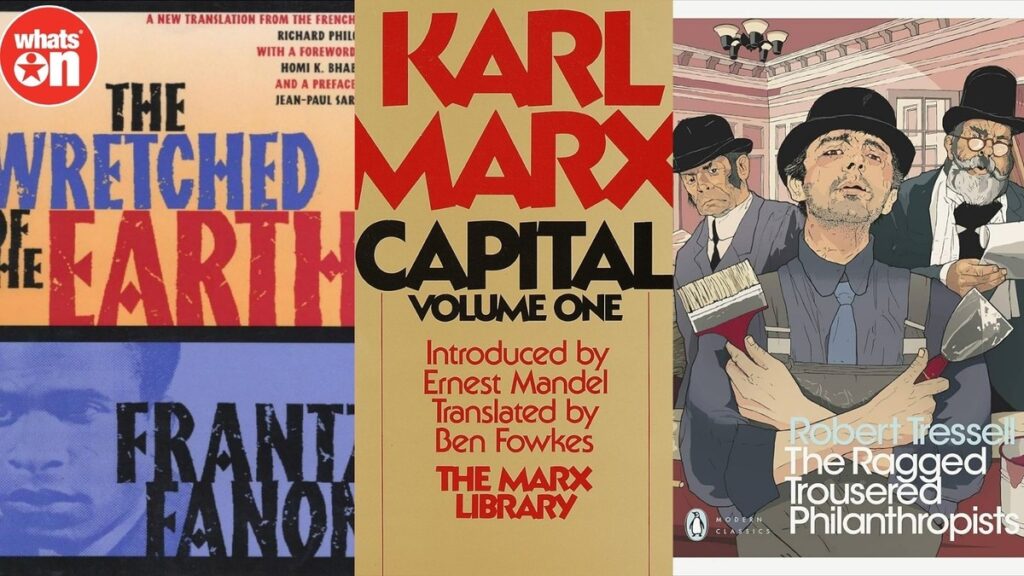Wednesday Wisdom: Celebrate Labour Day with powerful books on workers’ rights, social justice, and union movements. These seven must-read titles offer deep insight into class struggles, economic inequality, and labour history. Perfect for May Day inspiration, this list is ideal for activists, students, and readers seeking to understand the roots of modern work and resistance
1. The Ragged-Trousered Philanthropists by Robert Tressell
Written in the early 1900s, this working-class classic vividly portrays the struggles of painters and decorators in a fictional British town. Tressell’s novel critiques capitalism and explores how working people often become complicit in their own exploitation. Rich in socialist ideas, it’s a foundational text for anyone curious about labour politics and the roots of trade unionism. A true Labour Day essential.
2. Nickel and Dimed: On (Not) Getting By in America by Barbara Ehrenreich
In this modern investigative classic, journalist Barbara Ehrenreich goes undercover to explore the harsh reality of low-wage workers in America. From waitressing to cleaning services, she reveals the physical and emotional toll of jobs that barely cover living costs. Her honest, engaging account offers a sobering look at how the working poor survive—making it a powerful read for May Day reflection.
3. The Wretched of the Earth by Frantz Fanon
Fanon’s revolutionary text focuses on the psychological and political effects of colonialism and oppression. Though primarily about anti-colonial struggle, the book speaks directly to issues of exploitation, alienation, and the violence workers endure under imperialist systems. Labour Day is about global solidarity—and Fanon’s voice reminds us of the international dimensions of liberation and resistance.
4. There Is Power in a Union: The Epic Story of Labor in America by Philip Dray
This comprehensive, engaging history traces the rise of the American labour movement from the 19th century to modern times. Dray profiles iconic figures like Eugene V. Debs and A. Philip Randolph, while highlighting the tragic and triumphant moments that shaped workers’ rights. It’s an inspiring read that contextualises today’s labour challenges with stories of collective struggle and victory.
5. No Logo by Naomi Klein
Klein’s groundbreaking work critiques corporate culture, branding, and the global exploitation of workers. Published in 1999, it resonated with the anti-globalisation movement and remains deeply relevant. From sweatshops in Asia to union busting in the West, No Logo challenges readers to think critically about the cost of consumerism. It’s a sharp, bold book to revisit every Labour Day.
6. Work Won’t Love You Back by Sarah Jaffe
Jaffe’s modern manifesto dismantles the myth that we should be passionate about our jobs at the expense of our well-being. She examines how “labour of love” narratives exploit workers, especially in teaching, art, and care industries. Drawing from interviews and real-life stories, she exposes how emotional investment in work can lead to burnout. It’s a timely, empowering read.
7. Capital, Volume 1 by Karl Marx
No Labour Day reading list is complete without Marx’s seminal analysis of capitalism. Though dense, this foundational work breaks down how capital exploits labour and how surplus value is extracted from workers. Marx’s critique laid the intellectual groundwork for trade unions and socialist movements worldwide. Labour rights, wages, and class conflict are central to his thesis—making it a must-read classic.
For more book reviews, visitWhatsOn.Guide

